Montreal centre for people with disabilities fights to fend off looming lease expiration
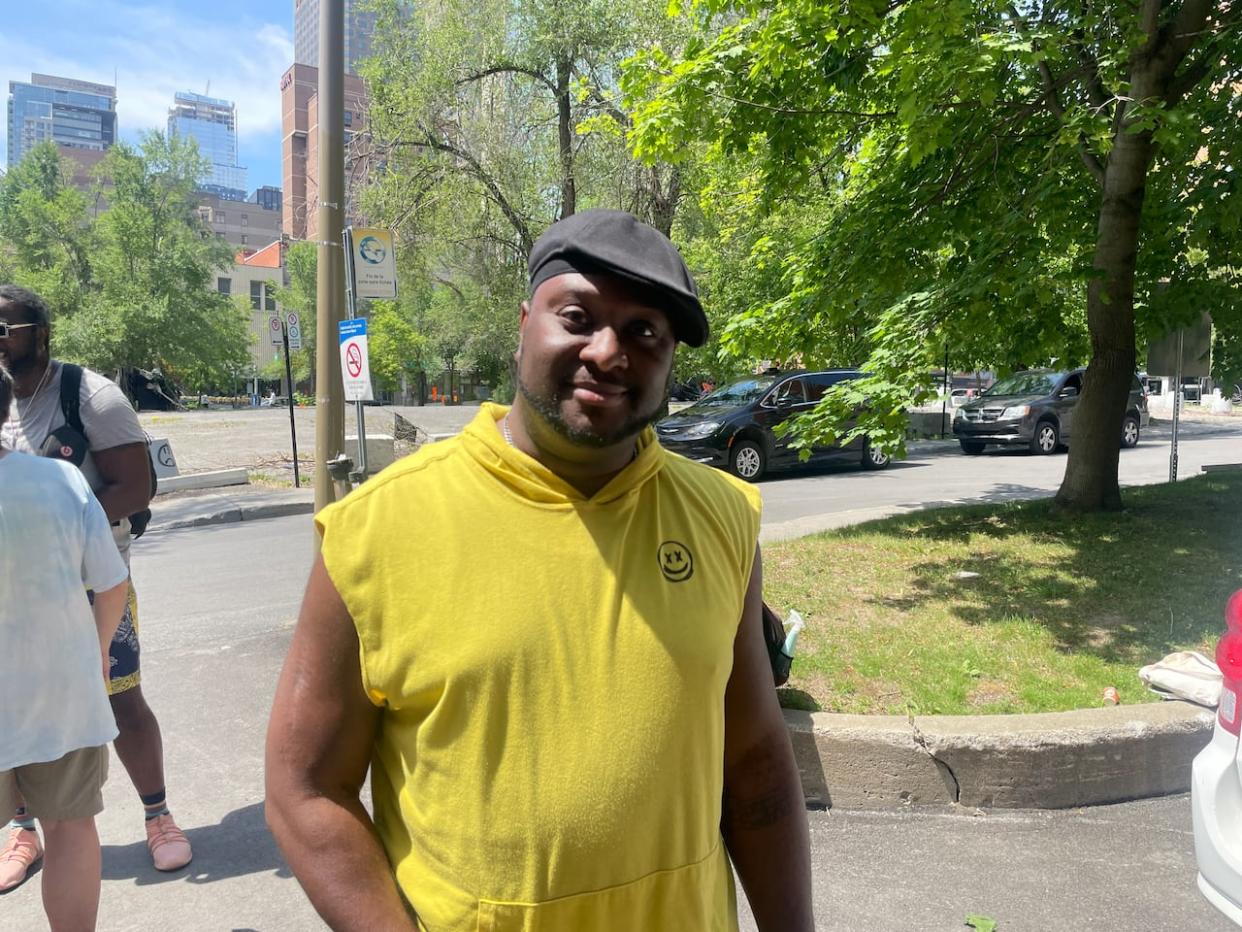
Several years ago, Emmanuel Carl Élie Cadet was driving on Highway 440, north of Montreal, and fell asleep at the wheel.
When he woke up from a coma 33 days later, he could neither talk nor move.
He eventually needed a wheelchair and a tracheotomy to create an opening into the windpipe to help air and oxygen reach his lungs. Élie Cadet's says the Centre communautaire Radisson (CCR) in downtown Montreal is a big reason why he was able to regain a positive outlook on life.
The day centre offers a long list of cultural, educational and social activities for people with physical disabilities in an effort to minimize isolation. He describes the CCR as a "life school" that helps people accept who they are and push themselves to learn and grow.
"You want to do something, they're going to help you. They're there for helping us accept [who we are]," he said. "Some people don't know where to go and Radisson is the way to go."
Soon, the CCR and the hundreds of people who use their services could have no place to go.
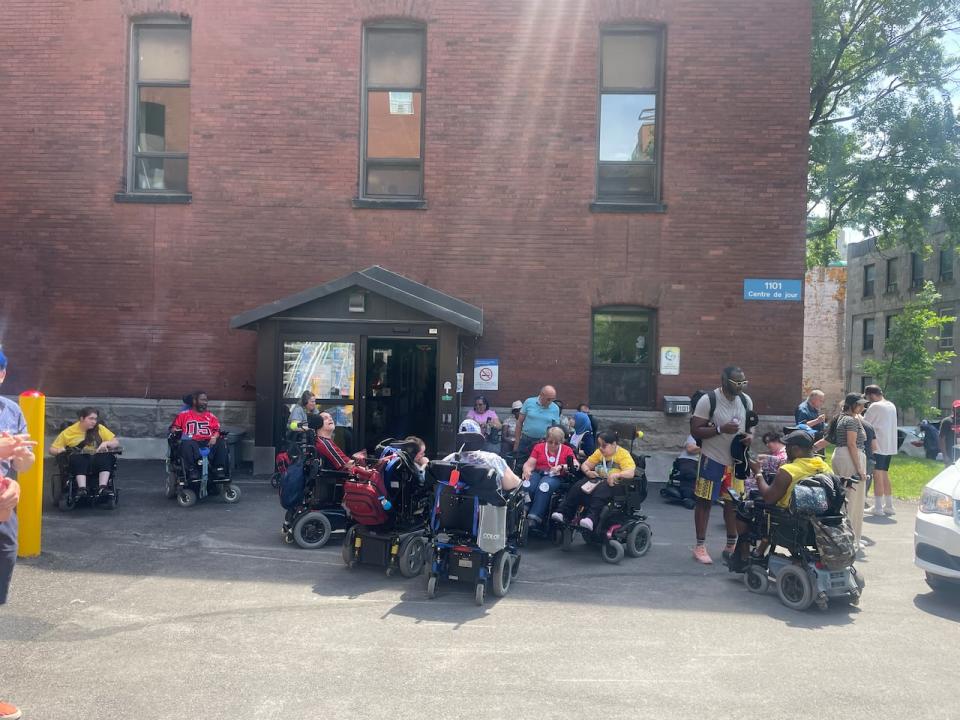
News of the pending expiration of the CCR's lease with the regional health agency galvanized its clientele, according to a youth program co-ordinator there, and led to Tuesday's rally. (John Ngala/CBC)
The not-for-profit organization has been operating on St-Dominique Street for nine years, but its original lease with the regional health agency, the CIUSSS du Centre-Sud-de-l'Île-de-Montréal, was supposed to expire in March. The CIUSSS extended it until December, but that's as far as it's willing to go.
In a statement, the CIUSSS says it needs the space to to address a "growing need for clinical services."
On Tuesday, Élie Cadet, other past and present users as well as the centre's staff gathered for a rally, hoping the health agency changes its mind, or at the very least, finds another suitable location.
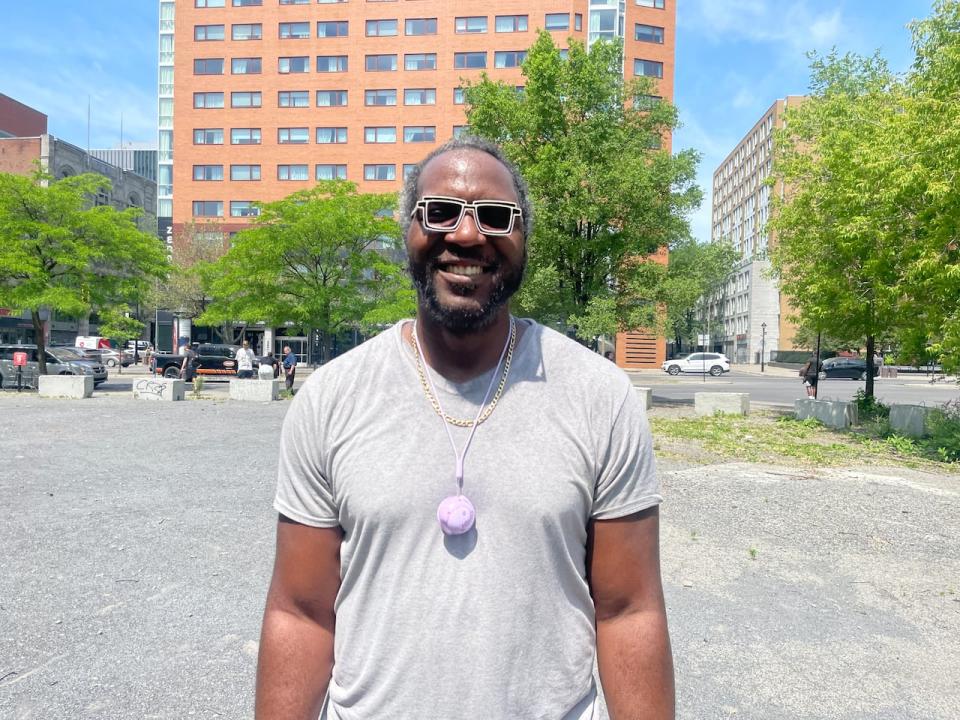
Two strokes affected Sandro François's ability to speak. He says the CCR was one place he felt comfortable socializing without fear of being judged for his speech. (John Ngala/CBC)
CIUSSS 'abandoning them,' says co-ordinator
Sandro François was also present during Tuesday's rally.
In 2010, he suffered two strokes that forced him to use a wheelchair for several years. The strokes have also affected the way he speaks, forcing him to utter words at a slow, gradual pace that draws attention. He started going to CCR in 2018, and he says it's one of the only places he's felt comfortable speaking publicly.
"I can let loose without feeling judged," he said. "It really got out of my bubble. It made me realize there's so many things I can still do and so many activities I still want to get the chance to do."
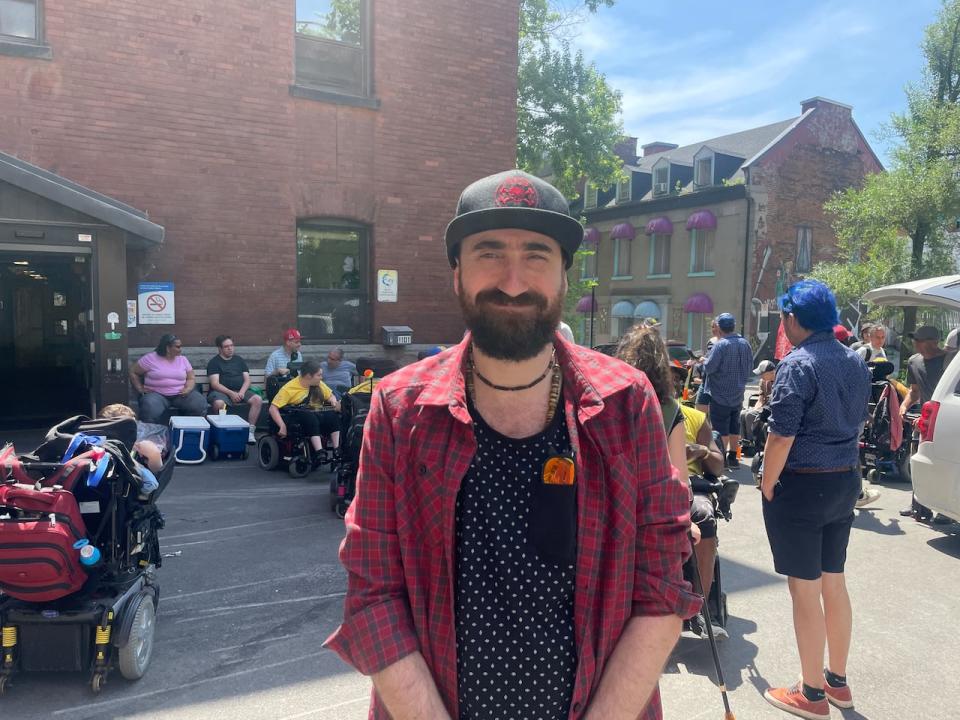
Benoît Verger-Demers, a youth program co-ordinator at CCR, says the centre offers essential services and it needs to find a new location to prevent people with physical disabilities from being isolated. (John Ngala/CBC)
Benoît Verger-Demers, the youth program co-ordinator at the CCR, says news of the lease's pending expiration was a major blow, but it also galvanized its clientele.
"People with physical disabilities, they always fought and they probably always will be fighting for their rights," he said. "Immediately, when they heard the news they began to mobilize themselves and they asked us 'what can we do to help?"
Looking for a new space won't be easy.
Verger-Demers says the current rent with the CIUSSS is a fraction of what a similar building would cost on the open rental market. He says the health agency suggested a church basement as a possible solution, but the co-ordinator says it was not adapted to the centre's needs.
Finding a new home
The co-ordinator says the health agency hasn't been transparent throughout this process.
He says the CIUSSS seemed open to renewing the lease last year, but that tone eventually changed. He also says the CIUSSS has given the centre multiple reasons for letting the lease expire, such as the need for mental health services or providing assistance to homeless people.
In a statement, Jean Nicolas Aubé, a spokesperson for the CIUSSS, said it was always clear the three-year lease signed in 2021 would never be renewed. He also said the health agency is doing everything it can to help the centre find a new home, including the decision to extend the lease from March until December.
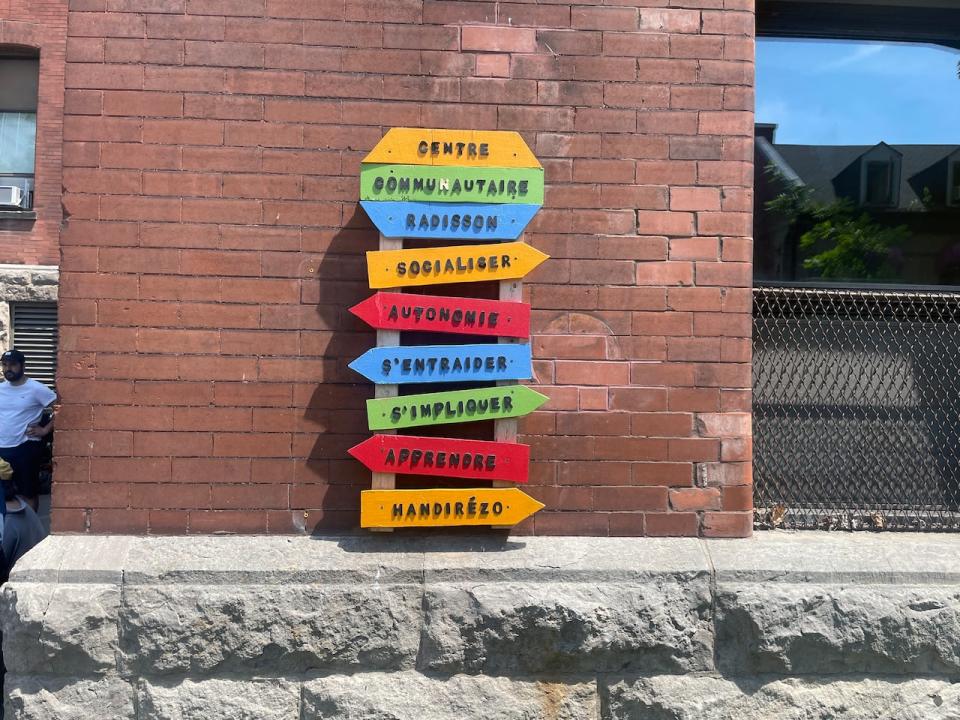
The CCR has been at its current location on St-Dominique Street for nine years. (John Ngala/CBC)
"Our teams have offered continued support to help them relocate on top of assigning a community organizer to its file," Aubé wrote, adding that the CIUSSS has helped them navigate the real estate market.
Verger-Demers says it's possible the centre will need to settle for a smaller space — which means a reduction in services.
"A decrease in services is going to be a hard blow for people," he said.
"If we have to say to somebody, 'You can't come because we don't have the space,' it probably will mean that this person won't go outside. They will be alone at home.… Being home alone, isolated, can really impact your mental health."


